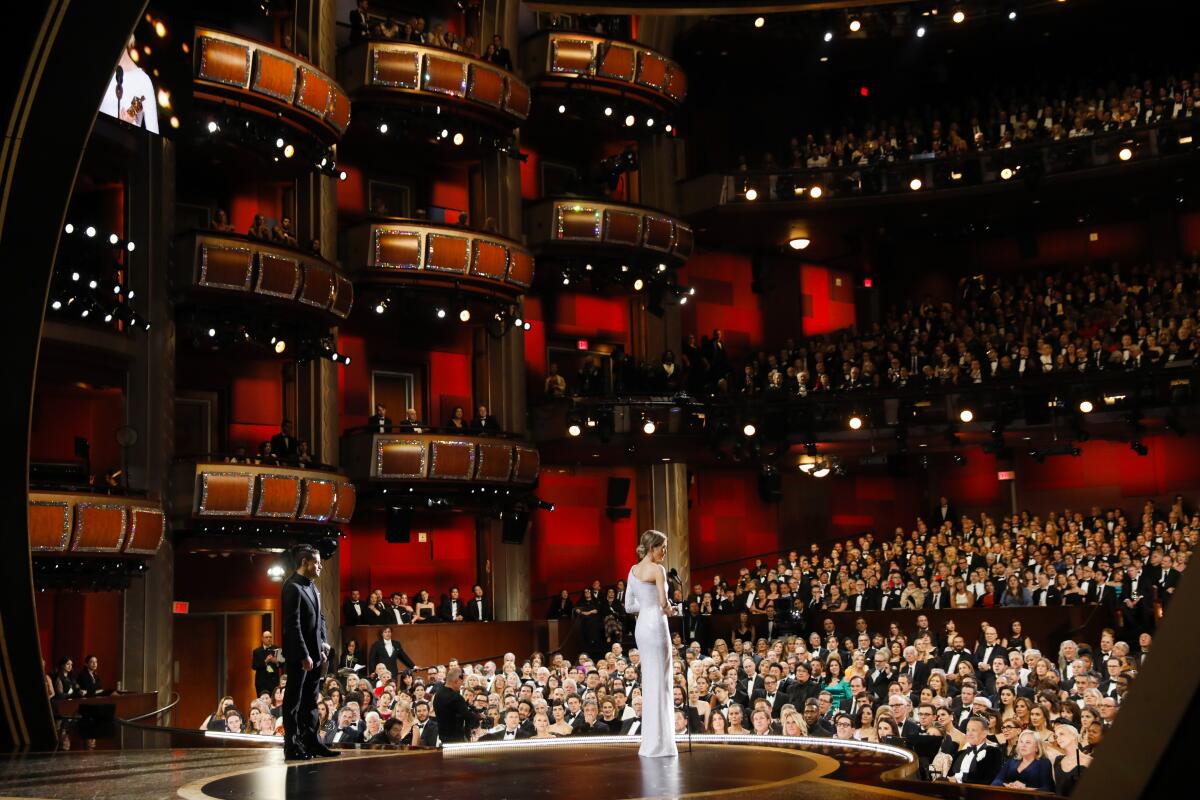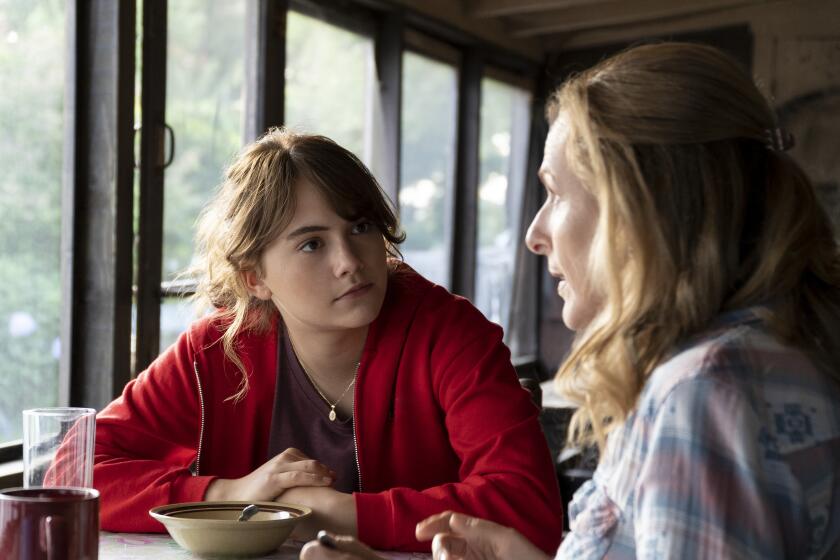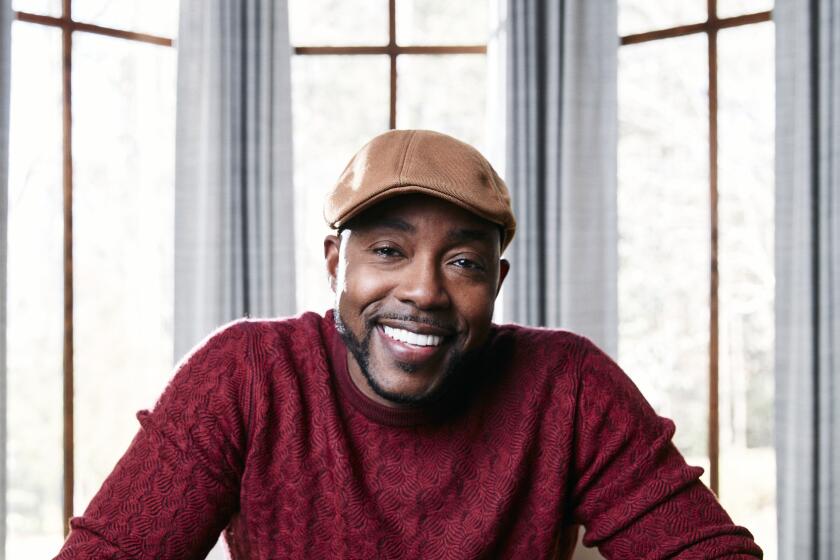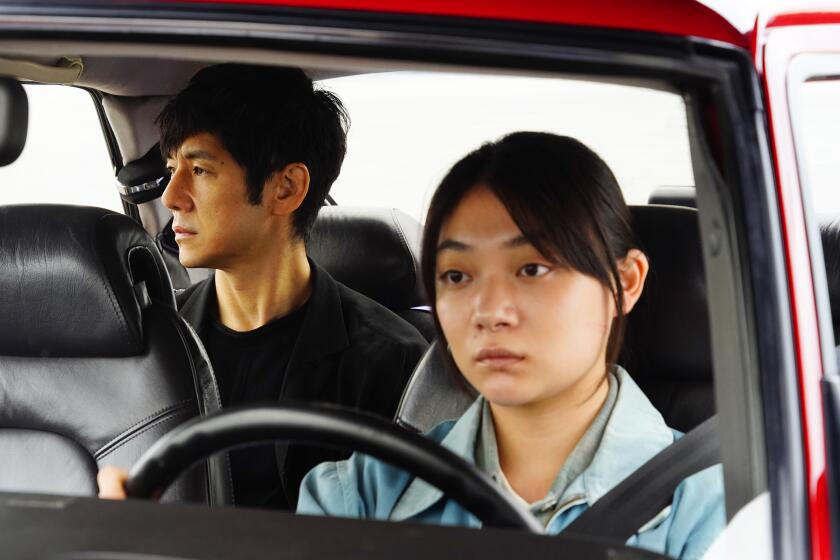After an apparent COVID-19 outbreak at the BAFTAs, how are the Oscars keeping attendees safe?

- Share via
Along with the usual suspense and hand-wringing over who will take home the gold at Sunday night’s Oscars, those planning to attend the ceremony are contending with another uncertainty this year: Will they catch COVID-19?
The recent British Academy Film Awards, held in London on March 13 along with various parties before and after the BAFTAs, are now suspected of having led to a number of COVID-19 infections, including among some of this year’s Oscar nominees, raising concerns over whether Hollywood’s biggest night could become another glitzy super-spreader event.
Following the BAFTAs, “Belfast” filmmaker Kenneth Branagh, Oscar-nominated for directing, producing and writing the movie, tested positive for COVID-19, as did the film’s Ciarán Hinds, a supporting actor nominee. Forced to isolate, both bowed out of attending Saturday’s Producers Guild Awards.
Days after the BAFTAs, filmmaking duo Phil Lord and Chris Miller, nominated this year for producing the animated film “The Mitchells vs. the Machines,” also tested positive, as did some members of the team behind the Oscar-nominated documentary “The Rescue” as well as a number of journalists, publicists, executives and others in attendance, according to insiders.
The PGA film prize has often been a strong precursor to an Oscar best picture win.
“There were so many events leading up to the BAFTAs and, of course, no one was wearing masks because legally they didn’t have to,” said a source who attended the awards ceremony. “You know when there’s that many people in an indoor space, something is going to happen.” The source added they knew at least a dozen people who tested positive for COVID shortly after the BAFTAs.
It is not clear whether the Oscars pose a similar risk. While the UK is currently experiencing a spike in new COVID-19 cases, numbers in the U.S. — and in Los Angeles in particular — have been declining sharply as the Omicron surge has waned. And in contrast to the BAFTAs, at which attendees were required only to provide a negative antigen test and mask-wearing was not enforced, the Oscars are adopting stricter COVID-19 protocols.
Those attending the Oscars, as well as anyone attending the academy’s honorary Governors Awards on Friday, will be required to submit two negative PCR tests as well as proof of vaccination, the academy has said. Presenters and performers at the Oscars will not be required to be vaccinated but will have to show that they have recently tested negative for the virus.
Members of the media covering the event on the red carpet will have to wear masks, as will attendees inside the Dolby Theatre who are seated outside of the orchestra section. While the theater normally holds more than 3,000 people, attendance will be more limited this year, with some seats being removed to provide greater social distancing.
Still, the Oscars and the various parties surrounding it will look far more normal this year than they did last year, when the awards were relocated to Union Station and the audience was capped at just 170 mostly masked attendees.
Whether they will feel normal is another question — and will likely vary depending on the COVID-19 anxiety levels of those attending.
As the Oscars hope to stem a ratings slide, producer Will Packer discusses the controversy over this year’s changes to the show and what viewers can expect.
“I think people are over it,” said one Oscar nominee, who has gone to numerous events leading up to the Oscars. “You test, you test, you test and then you just hope for the best. No one’s wearing masks. I carry one, but you feel like you’re being paranoid — and everyone will see you as being paranoid — if you actually put it on and wear it.”
Said another nominee: “I’m going, but, to be honest, all the protocols drain the fun out of attending. Plus, I don’t know how much good they’ll do. I’ll probably lose. I won’t come home with an Oscar, but I may come home with COVID. Yay!”
As with the BAFTAs, numerous parties and other events are scheduled in the days leading up to Sunday’s ceremony, from a celebration of Norwegian cinema to the 15th annual Essence Black Women in Hollywood Awards to an industry-packed CAA party celebrating such nominees as Steven Spielberg, Paul Thomas Anderson and Nicole Kidman — all of which will have their own COVID-19 protocols, but which taken together could provide more opportunities for the virus to spread.
Oscar night itself will see the return of many of the into-the-wee-hours parties of the prepandemic era, including the Governors Ball, the Vanity Fair party and the Elton John AIDS Foundation Viewing Party.
If there’s any concern about attending these events in the wake of a possible surge, it hasn’t been much in evidence judging from the crowded ballrooms at the various guild awards and after-parties that have taken place this month.
“People are ready to leave behind the isolation,” says an awards consultant who has schmoozed through the late-season events. “The news out of the BAFTAs was a little concerning, but I think it’d take someone to, you know, actually die to keep Hollywood away from the Oscars.”
Cutting important categories from its live telecast and Twitter-sourcing fan favorites won’t do a beleaguered motion picture academy any favors.
More to Read
Only good movies
Get the Indie Focus newsletter, Mark Olsen's weekly guide to the world of cinema.
You may occasionally receive promotional content from the Los Angeles Times.















